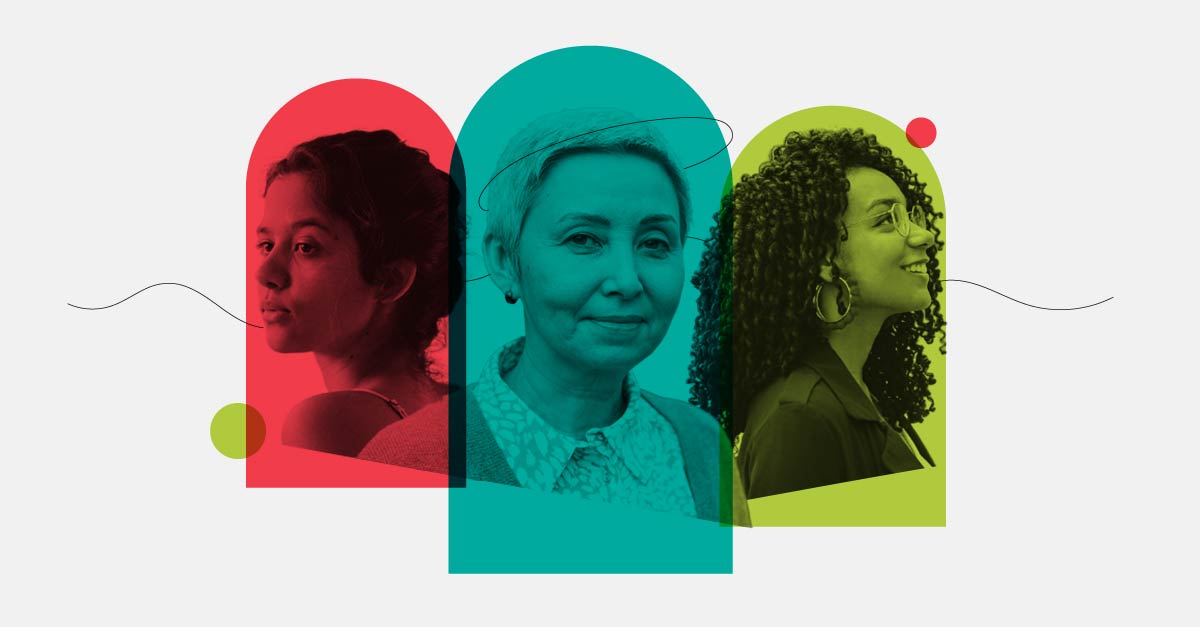Canadians officially mark Women’s History Month in October, celebrating the achievements and contributions of women and girls across the country and throughout our history as business leaders, politicians, researchers, artists, activists and more.
Did you know that (as of 2021) women globally held only 28.2% of management positions despite accounting for almost 40% of total employment? At the current rate, it will take 140 years to achieve equal representation in leadership in the workplace.
Sustainable Development Goal (SDG) 4 Quality Education and 5 Gender Equality are intrinsically linked. That’s why it’s so important to empower more women – Indigenous women, women from 2SLGBTQI+ communities, women with disabilities, and newcomer, racialized, and migrant women to achieve their full potential.
A core principle of our work is to empower women and girls around the world. Our approach is based on human rights and promotes access to training, addressing systemic and socio-cultural barriers faced by female students while developing gender-responsive programs and promoting gender-responsive pedagogy. For example:
The Mille femmes: Je suis Femme, j’Existe, je Participe program (One Thousand Women: I am woman, I exist, I participate) empowers some of the most vulnerable women in Senegal by making training, and thus formal employment or self-employment, more accessible and adapted to their needs.
- 1,000 women in seven regions of Senegal will receive direct support from the project.
- The project also works at the community level to advocate, raise awareness, and mobilize political, social, and economic leaders to support the engagement of women as full citizens within their communities.
The Education for Employment Tunisia Al-Najah program increases the economic autonomy of young graduates in Tunisia – particularly female graduates – living in underprivileged regions of the country, while reducing the country’s unemployment rate and combating poverty among women.
- More than 25,000 students, at least 50% of which are women, will benefit from this project.
- The project also ensures that teachers are trained to support their students in gender-sensitive pedagogy, competency-based approaches, female entrepreneurship for educational purposes, and on gender-specific employability strategies.
The Empowerment Through Skills Program (ESP) strengthens alternative pathways to education, employment, self-employment and entrepreneurship for women and adolescent girls in 12 communities across Tanzania.
- More than 700 women and adolescent girls will graduate from gender-sensitive programs.
- PLUS! Thanks to new safeguarding guidelines developed through ESP, nearly 600 postsecondary institutions in Tanzania will have an extra tool to enhance the safety and protection of young women and men against sexual and gender-based violence.
The Canadian International Development Scholarships 2030 program (BCDI 2030) empowers women in 26 eligible countries and Small Island Developing States through high-quality, inclusive education and training opportunities (including technical and professional training) to address inequality, bettering their lives and their communities.
- More than 7,000 people will directly benefit from the program, at least 51% of whom are women.
Our work directly supports gender equality in Canada and around the world – and has for more than 50 years. In that time, we have delivered more than 800 projects in more than 100 countries.
Women’s History Month is an opportunity to reflect on how we can empower more women to make history.

